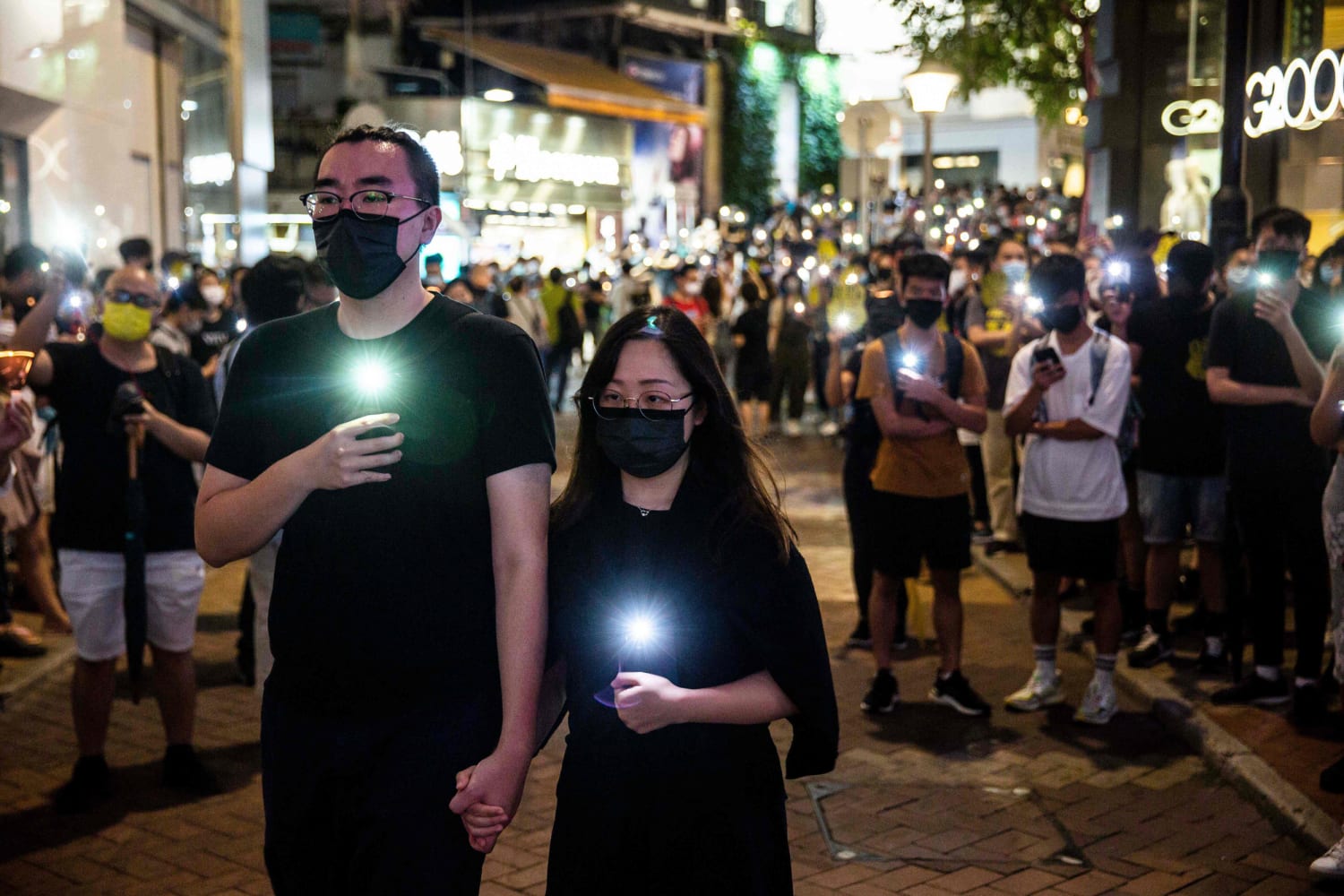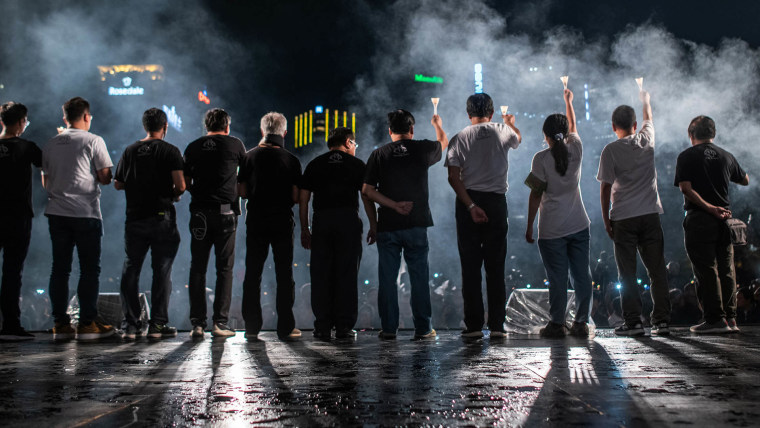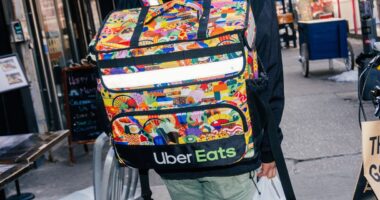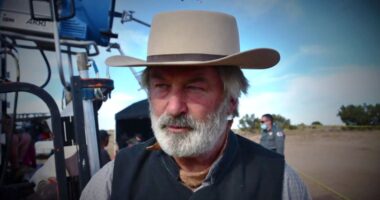HONG KONG — The Chinese territory of Hong Kong, once the home of the world’s largest June 4 vigil for victims of the 1989 Tiananmen Square crackdown in Beijing, may hold no public commemoration for the first time amid an intensifying assault on the city’s long-held freedoms.
With many of its organizers jailed and a Beijing-imposed national security law creating uncertainty, those who would have attended the annual vigil are being urged to light candles at home instead.
“The June 4th vigils in Hong Kong have been the core spirit of the city’s decency, humanity,” Wu’er Kaixi, a leader of the Tiananmen protest movement who now lives in Taiwan, told NBC News. But they have also been “a thorn in the eyes of Beijing.”
Arresting the organizers is the ruling Chinese Communist Party’s attempt to “put that (spirit) in prison,” Kaixi said.
Stamping out a movement
For 30 years, thousands of people would solemnly file into Hong Kong’s Victoria Park every June 4, lighting candles and listening to emotional speeches about the Chinese military assault on pro-democracy protesters in and around Tiananmen Square, in which hundreds and perhaps thousands were killed. (The Chinese government has acknowledged that people were killed in what it calls “counterrevolutionary turmoil.”)
The vigils — which would be impossible to hold in mainland China, where most discussion of the Tiananmen protests is banned — were seen as a symbol of the freedoms Hong Kong was guaranteed for 50 years when the former British colony was returned to Chinese rule in 1997, including freedom of expression and assembly.
In 2019, the 30th anniversary of the crackdown, turnout at the June 4 vigil was especially large — organizers estimated 180,000 people attended, while police put the crowd at 37,000. The vigil came less than a week before the start of anti-government protests that roiled the city for months until the start of the pandemic.
Hong Kong officials banned the vigil in 2020 and 2021, citing pandemic restrictions on public gatherings. In 2020, thousands defied the ban to gather at Victoria Park anyway, with at least two dozen activists later sentenced to up to 15 months in prison for organizing, taking part in or inciting participation in the vigil. Last year, police blocked off the park entirely, though smaller, more mobile protests still took place.
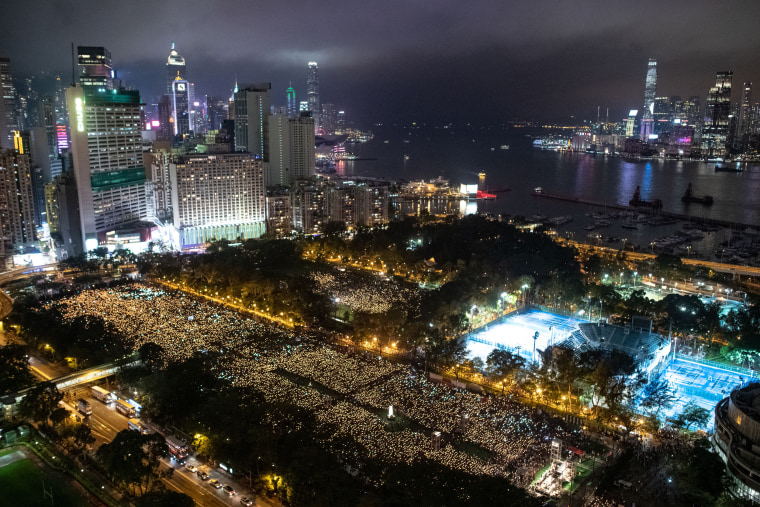
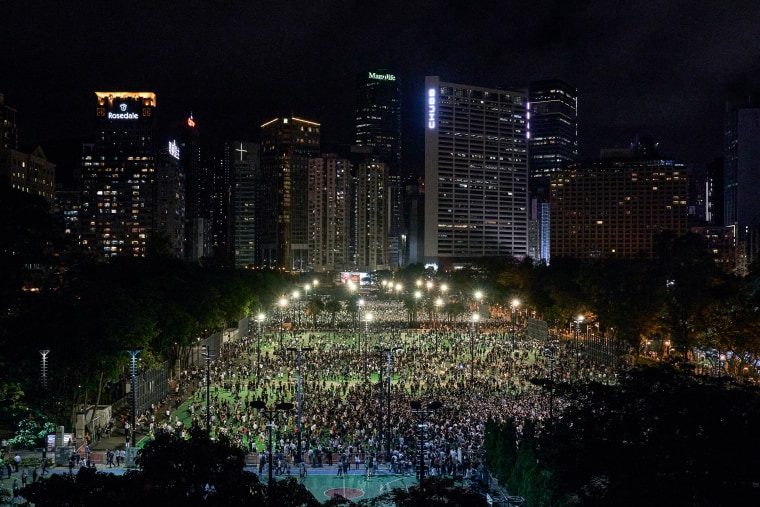
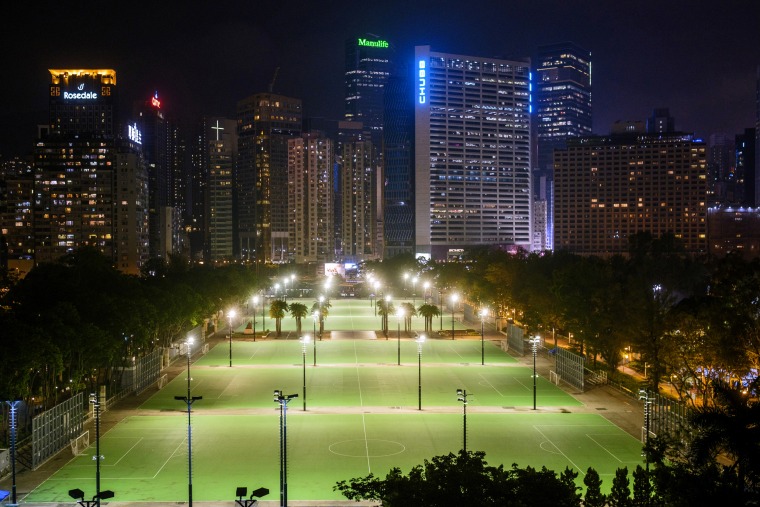
Since then, efforts to stamp out Tiananmen commemorations have only accelerated.
The city’s June 4th Museum, which had already been forced to close, was raided in September by national security police who carried away boxes of exhibits. Access to its website was blocked in Hong Kong, which unlike mainland China has a relatively unrestricted internet.
Leaders of the Hong Kong Alliance in Support of Patriotic Democratic Movements of China, the group behind the vigils as well as the museum, were arrested under the national security law, which Beijing imposed in 2020 in response to the 2019 protests. Facing growing legal pressure, the group voted to disband in September.
In December, the University of Hong Kong removed a Tiananmen memorial sculpture that had stood on campus for more than 20 years. Three other universities quickly followed suit, removing their own Tiananmen artwork.
Even an episode of “The Simpsons” with a Tiananmen reference is inaccessible in Hong Kong on the Disney+ streaming service.
And last week, the Roman Catholic Diocese of Hong Kong canceled its annual Tiananmen memorial Mass, citing concerns about the national security law.
Asked whether residents would face legal consequences if they gathered at Victoria Park on Saturday, Carrie Lam, Hong Kong’s departing chief executive, said any public activity in Hong Kong must be conducted in accordance with the law.
“As far as any gathering is concerned, there are a lot of legal requirements,” she said at a news conference Tuesday, citing the national security law, social distancing rules and the need for permission from the venue owner.
Current pandemic restrictions in Hong Kong cap public gatherings at four people. At a news conference on Thursday, a top police official warned the public: “Do not try to challenge the law’s bottom line.”
On Friday, the government announced that part of Victoria Park, including the soccer pitches where the vigils are usually held, would be closed from 11 p.m. that night until early on June 5, “in order to prevent any unauthorized assemblies.”
‘No regrets’
The Tiananmen demonstrations in 1989 had a profound impact on Hong Kong, which was still a British colony at the time but was preparing for its return to Chinese rule.
“I consider June 4th coverage war reporting,” said S.K. Yip, a videographer from Hong Kong who took a wider version of the famous “Tank Man” photo. “While I did not see people getting shot in front of me, I saw lots of blood on victims. … It was definitely shocking to me.”
Also on the scene was Lee Cheuk-yan, co-founder of the Hong Kong Alliance and a member of the city’s Legislative Council for more than 20 years.
Like many of Hong Kong’s democracy activists, Lee is now in prison, after being convicted in multiple cases stemming from the 2019 protests as well as his role in the banned 2020 vigil.
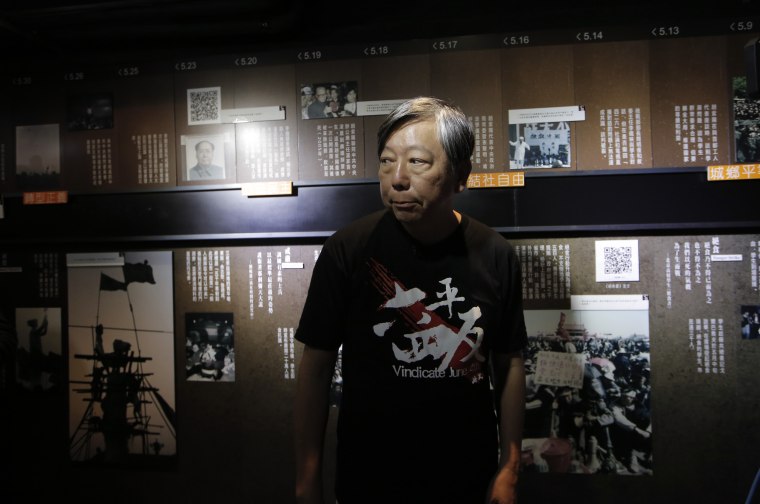
He has also been charged under the national security law along with fellow Alliance leaders Albert Ho and Chow Hang-tung.
The vaguely written security law, which Beijing says was necessary to restore order after the sometimes-violent protests, criminalizes secession, subversion, terrorism and collusion with foreign forces. Lee, 65; Ho, 70; and Chow, 37, have been charged with “incitement to subversion,” which could carry a 10-year sentence.
Speaking in court last year, Lee said that he had “no regrets” and that “if I must go to jail to affirm my will, then so be it.”
He said the vigils symbolized “the struggle of memory against forgetting.”
“The people of Hong Kong who took part needed no person or organization to incite them,” he said. “If there was a provocateur, it is the regime that fired at its own people.”
An attack on artwork
Late one night just before Christmas, while students were on winter break, workmen and security personnel at the University of Hong Kong erected yellow barricades around a 26-foot, 2-ton copper sculpture and started drilling.
The blood-orange sculpture, a monument to Tiananmen victims called the Pillar of Shame, is a tower of human torsos twisted together in anguish. It had been at the university since 1998, when the student union voted to permanently display it on campus. It was carted away in two pieces.
In a statement at the time, the university said that it had never given permission for the sculpture to be displayed on campus and that there were concerns it could pose safety issues.
“The decision on the aged statue was based on external legal advice and risk assessment for the best interest of the university,” the university said.
Source: | This article originally belongs to Nbcnews.com


